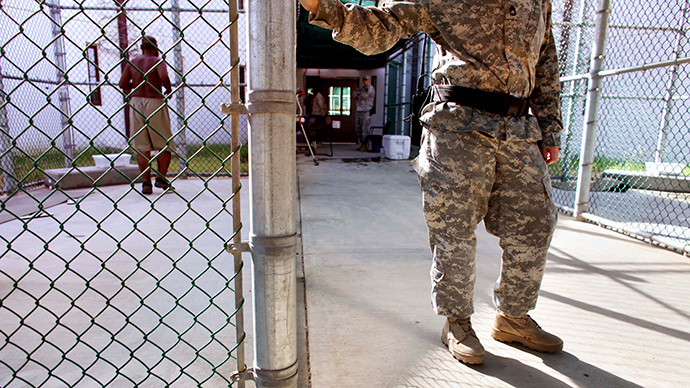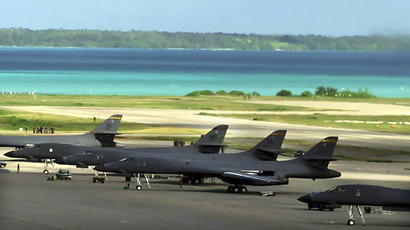US wanted Britain to build 2nd Guantanamo – report

Britain could have had its own Guantanamo Bay, according to classified documents detailing discussions between the US and Tony Blair’s government.
The prison, which could have been built in the British territory of Diego Garcia, would have hosted up to 500 detainees, and like the Cuban prison, would have been allowed to operate outside the normal parameters of international law.
The plans, detailed in documents seen by The Telegraph, were dismissed on the grounds that CIA and other intelligence agencies could have used the island to secretly fly terror suspects to “black site” prisons across the world.
British military officers at Diego Garcia, Adam Peters, told the Telegraph that the requests to build facilities on the territory came through a US command center in Japan, but was dismissed almost immediately after costs were taken into consideration.
However, lawyers, human rights groups and MPs maintain that a serious investigation needs to take place into Britain’s role in torture, and whether the government "turned a blind eye" to human rights abuses.
Revelations of proposed sites for such maximum security prisons will add pressure to the US and UK governments, as the US Senate prepares its report on Bush-era torture and rendition programs during the so-called "war on terror."
The report is said to show evidence that Britain was complicit in the US rendition programs, and that a secret prison was created on the island “with full co-operation” from the British government.
In particular, the report is likely to show that Diego Garcia was a key location in the rendition program. In 2011, top secret files showed that Libyan Islamist Abdel-Hakim Belhadj and his wife, Fatima, were subject to extraordinary rendition in 2004, with the island being listed on the CIA’s flight plan of the operation.
"Did UK officials know about this? Did they have to know, given all the high-level conversations about whether a more permanent prison on island was feasible, and then hide behind a 'don't ask, don't tell' policy?" said Cori Crider, strategic director at legal charity Reprieve, a human rights NGO currently providing legal assistance to Belhadj.

Ministers in successive governments have repeatedly come under pressure to expose the truth behind the UK’s involvement in US anti-terror initiatives, and have been accused of misleading Parliament in regards to extraordinary rendition.
Last month, the British government claimed that documents relating to the UK’s involvement in rendition were "permanently damaged" by water leaks, including information relating to flights taking off and landing on Diego Garcia. Following reports that the documents were unreadable, a number of human rights groups referred to the act as a “cover-up.”
Britain has long been accused of complicity and collusion in controversial US anti-terror programs.
In February 2008, then-Foreign Secretary David Miliband was forced to admit in the House of Commons that Diego Garcia had been used for at least two rendition flights, although he denied that anyone on board the planes had disembarked.
He also came under heavy criticism in 2010, following revelations that he tried to suppress evidence of British security services colluding in the torture of Binyam Mohamed, an Ethiopian-born British detainee.
According to the report, Mohamed, 31, who was granted refugee status in the UK in 1994, was "intentionally subjected to continuous sleep deprivation" and underwent significant "mental stress and suffering" that “could readily be contended to be at the very least cruel, inhuman and degrading”.
Mohamed was awarded £1 million in compensation from the British government after filing a civil lawsuit with 16 other former detainees.














